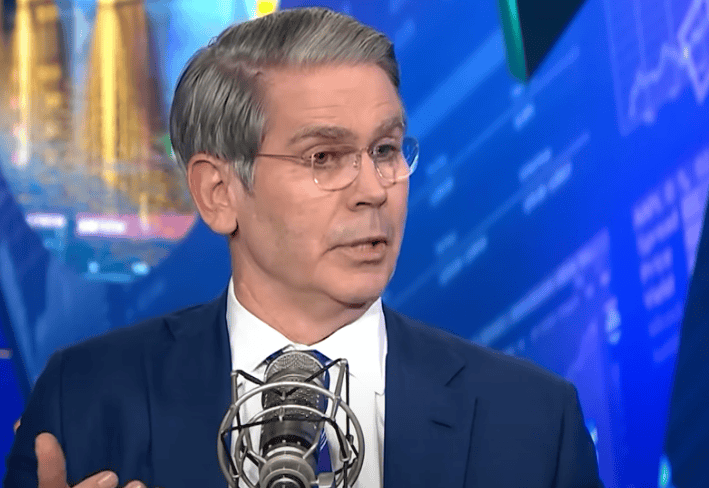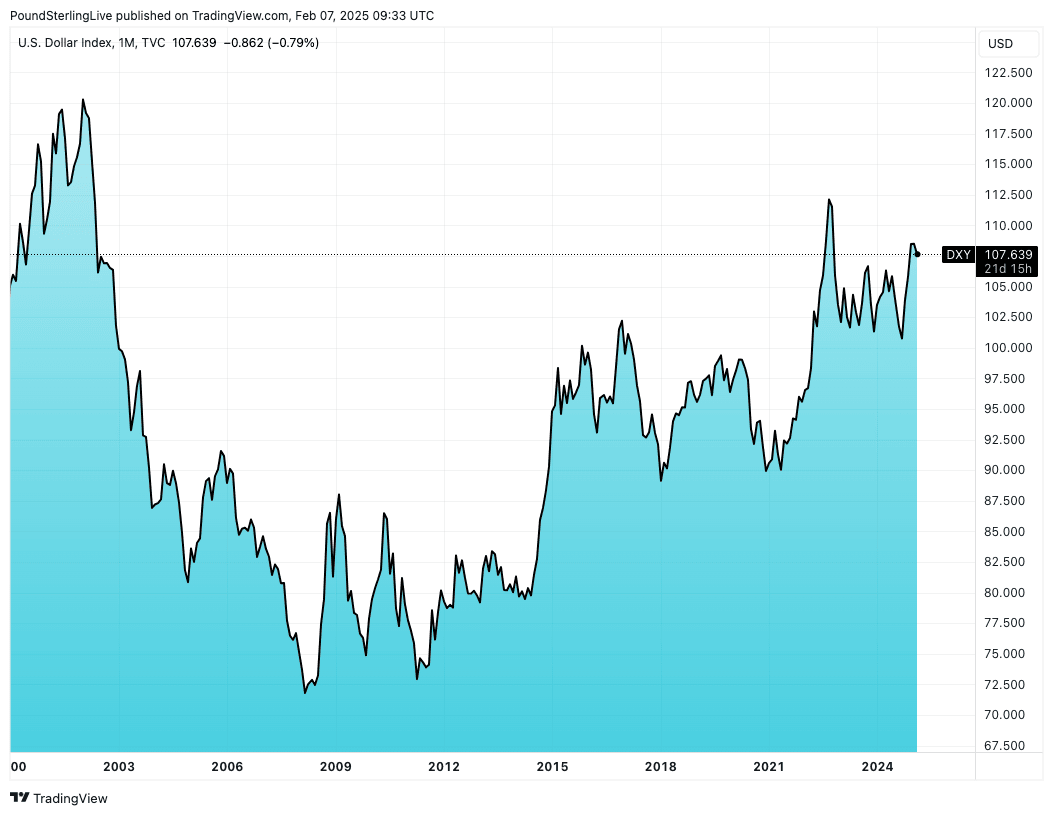
Above: File still of Scott Bessent. Courtesy of Bloomberg.
A strong dollar won't face any pushback from U.S. President Donald Trump, even as he tries to rebalance global trade and lower the U.S. deficit.
This is according to Treasury Secretary Scott Bessent, who said in an interview that the U.S. continues to have a "strong dollar" policy.
"The strong-dollar policy is completely intact with President Trump," he said. "We want the dollar to be strong. What we don't want is other countries to weaken their currencies, to manipulate their trade."
The U.S. recorded a trade deficit of $918.4BN in 2024, marking a 17% increase from the previous year.
The deficit represents the difference between the country's imports and exports of goods and services, and Trump views it as proof that foreign trading partners are partly responsible for the hollowing out of American industry.
Bessent says those countries that are recording an "accumulation of large surpluses" confirm "there is not a free form trading system" in place.
He says "interest-rate repression" - which lowers the currency to boost exporter competitiveness - may also be a factor in some places.
Bessent wants a piece of that action too.
He said on February 06 that when President Donald Trump speaks of wanting lower interest rates, he is referring to the yield on the 10-year Treasury and not the short-term rate set by the Fed.
Typically, lower yields are the result of lower central bank policy rates and it is difficult to see a path to lower rates without the Fed's help.
Another conundrum facing Bessent and Trump is that the Dollar is closely tracking U.S. yields, which means lower yields will weaken the Dollar.
This makes it difficult to understand the logic between achieving lower yields yet maintaining a strong Dollar and raises more questions than answers, which is typical of the uncertainty that Trump encourages to help him deliver his goals.
Above: USD hasn't been this expensive since 2002.
However, some analysts say Bessent knows a weaker Dollar is the outcome and that he sees it as an effective tool in rebalancing U.S. trade.
"Rebalancing trade via the currency instead of via tariffs is more in line with how Scott Bessent would prefer to approach things," wrote W. Brad Bechtel, Global Head of FX at Jefferies on January 22. "He will need the Fed's help in order to accomplish that goal as the USD will not move lower without the help of US real rates. US real rates will not move lower without the Fed getting repriced for more cuts."
The developments come as Germany reports that its goods trade surplus with the U.S. hit a new high last year.
This will not go unnoticed amongst U.S. officials as they prepare import duties on European goods.
According to Bloomberg calculations based on Destatis data published on Friday, Germany's goods trade balance stood at €69.95BN in 2024, up more than 10% from the previous year.
Germany's widening of the surplus reflects both more exports and fewer imports amidst economic stagnation.

